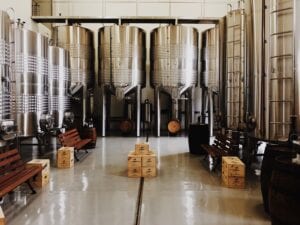
Picture by from Roberta Keiko Kitahara Santana from Unsplash – CC0 Licence
Cleaning and sanitation is vital in breweries for three reasons;
- To assure the drink you brew is free from bacteria, viruses, and infections that could transfer to the customer.
- To prevent the taste of the alcohol from being compromised.
- And to follow health and safety regulations regarding the production of beverages. Plus to keep staff safe from infections, viruses, and spills that might cause a health hazard.
For a brief look at points to consider when forming a cleaning and sanitation routine for your brewery business, consider the acronym TACTS WINS. Below is a summary of how the abbreviation relates to developing an effective cleaning regime.
T – Time
Time matters when cleaning. Too much time spent cleaning, and the product used on the apparatus could lose its effectiveness and build a residue on the surface. Too little time, and soil surfaces and harmful bacteria shall not be removed.
A – Action
Define the equipment you and your staff, shall use to clean specific sections of the brewery. For instance, stainless steel sanitary flanges used in breweries have a polished finish, which prevents bacteria from seeping into its surface. Standard industrial flanges, however, will require scrubbing to remove the soil particles that often fall in the cracks of its surface.
C – Cleaner
Use an appropriate cleaner for each part of the brewery. And decipher the concentration needed to clean the premises properly. Cleaners vary from alkaline to acidic and have different purposes. Some cleaning products remove spills. Whereas others such as sanitizer, cleanse bacteria from the surface.
T – Temperature
Assessing the temperature of water or cleaner that you can use on a surface beforehand is essential. To prevent using fluid at a temperature that could damage the business equipment, floors ceilings, and so forth.
Usually, the higher the temperature, the higher the chance of a cleanser lifting soiled molecules off the surface.
W – Water
Use water to dilute a cleaner and remove the soil and cleaner from the surfaces. However, be mindful of the water you use. Impure water could fail to remove bacteria or dirt from the brewery or corrode the equipment.
I – Individual
Take care of yourself when cleaning. Wear the safety equipment needed to protect your eyes, hands, and any other exposed skin with personal protective equipment (PPE). Safety should always come first.
N – Nature of soil
Analyze the type of substance you are tackling before attempting removal. Using the wrong product could result in the contents becoming bound to the surface.
Sometimes, in new tanks in breweries, the grease isn’t entirely removed. Resulting in the need to burn the oil off, which leaves black marks and smudges in the tank.
S – Surface
Identify the surface you are cleaning before applying a product. To ensure you use the correct chemical and concentration.
Professional breweries use TACT WINS to create a cleaning regime that effectively;
- Removes soil and bacteria
- Maintains the surfaces and equipment
- And protects the cleaner
